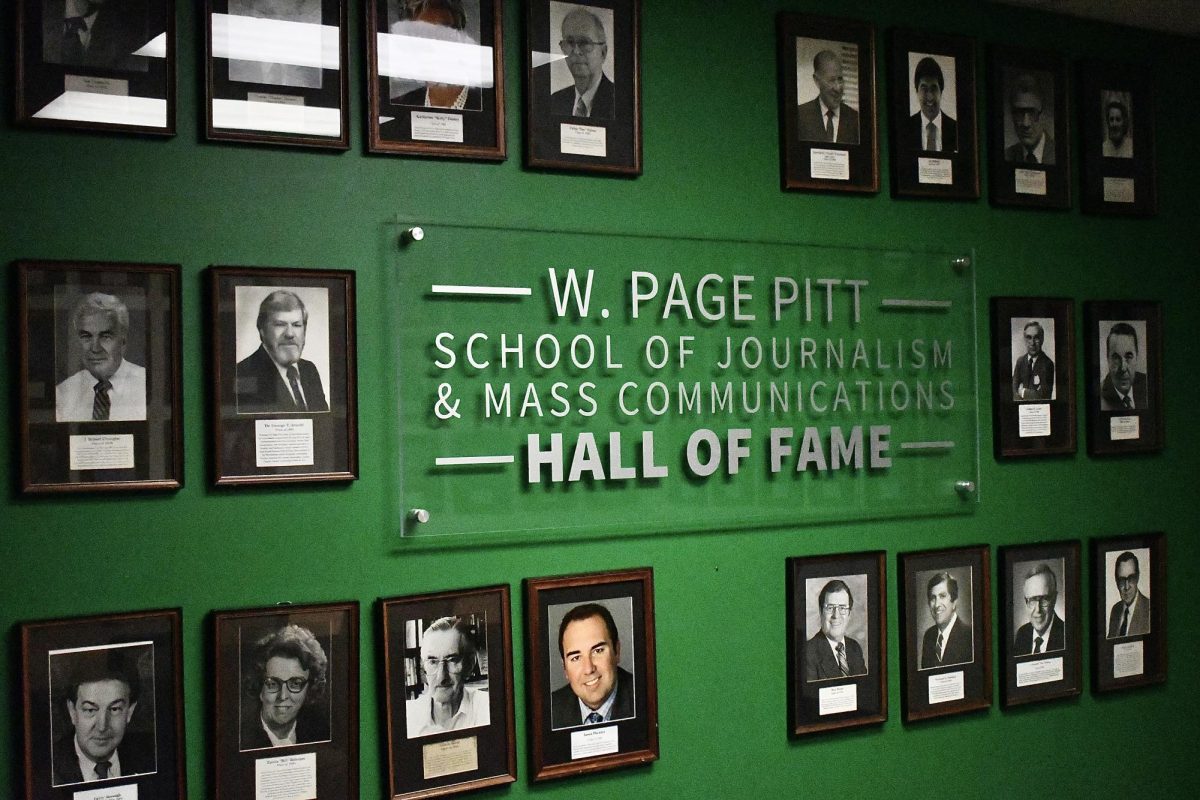Glenn Elliott, the Democrat West Virginia Senate candidate, spoke at Marshall’s campus as a part of his “The Place Where We Belong” tour to get to know West Virginian communities as well as introduce himself.
The event took place on Oct. 7 in the Memorial Student Center and consisted of Elliot’s introduction, his speech on his values and a Q&A portion. During the Q&A portion, he spoke on topics negatively affecting West Virginia, like education, student tuition forgiveness, job creation, abortion and accessibility to healthcare.
Elliott is a seventh generation West Virginian who served as mayor of Wheeling, West Virginia, for two and a half terms. In addition to that, he worked as a legislative assistant to U.S. Senator Robert C. Byrd from 1994-1999.
Reagan Clagg, a political science major at Marshall University, introduced Elliott, giving reasons as to why he is a good candidate for senate.
“Glenn understands the unique challenges we face, but more importantly, he knows how to turn challenges into opportunities,” Clagg said. “He’s also a fierce advocate for the rights and freedoms of all West Virginians, including reproductive freedom. Glenn firmly believes that decisions about healthcare, particularly reproductive healthcare, should be made by individuals, not by politicians in Washington.”
Throughout the event, Elliott spoke on his views toward many issues facing West Virginians and what kind of legislation he would be in favor of to help alleviate those issues.
One of the issues Elliott spoke on was West Virginia’s declining population and ways to make West Virginia a state people want to move to.
“I think too many of our state leaders want to just protect coal for that until the last piece of coal is actually mined out of the state,” Elliott said. “We should be diversifying our production capacity across the board now and retraining folks who used to work for mines for other jobs.”
However, Elliott explained that coal is just one issue in the job market that is a part of a system of interconnected issues making West Virginia less appealing to move to.
“You need to get healthcare policy right,” Elliott said. “As long as people are afraid to leave their job and start their own business because of losing actual health insurance, you really do stunt sort of creativity and economic growth.”
Elliot explained that it is not just healthcare policy causing issues in West Virginia, but healthcare accessibility since many West Virginians do not have access to good healthcare in their area, much less affordable healthcare.
“When I quit my job in 2008 to move back to Wheeling, I did so for one reason only: I’d always been healthy,” Elliott said. “If I was a type-one diabetic, if I had some other preexisting condition, I never would have felt safe or comfortable actually walking away from a job where I had health insurance.”
During the Q&A portion of the event, Elliott was asked if he would be for legislation in favor of tuition forgiveness and what his views were on it.
“I would absolutely look at ways to reduce the cost of college and trade schools for folks because it’s gotten out of control,” Elliott said.
He went on to explain that in his lifetime, the rate at which tuition is increasing is faster than inflation, and the amount of debt students are left with is limiting their choices and harming their careers.














